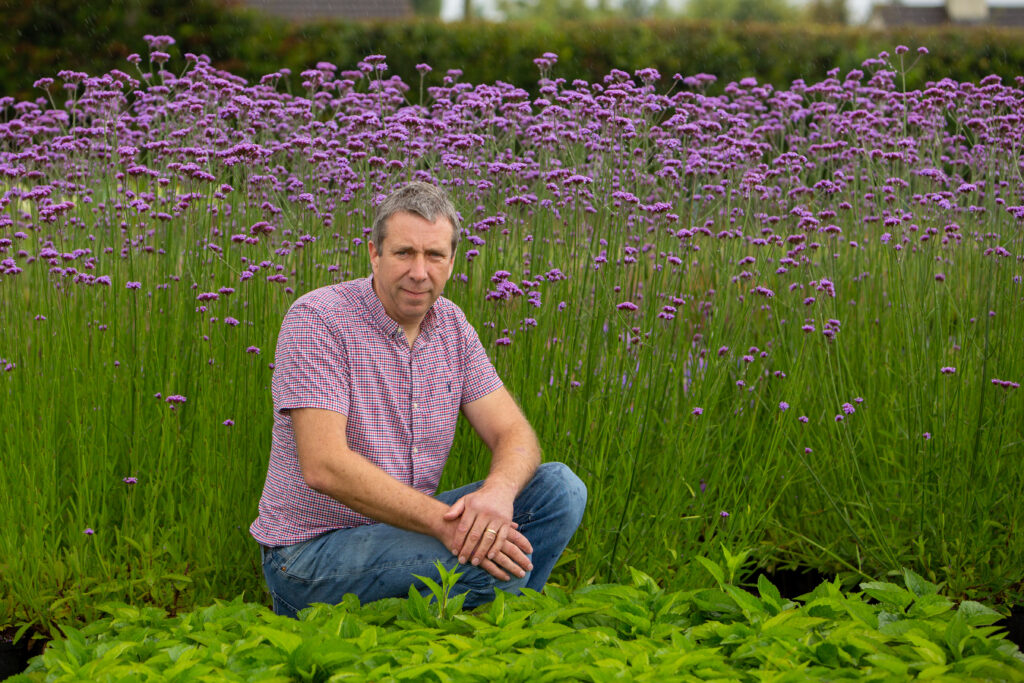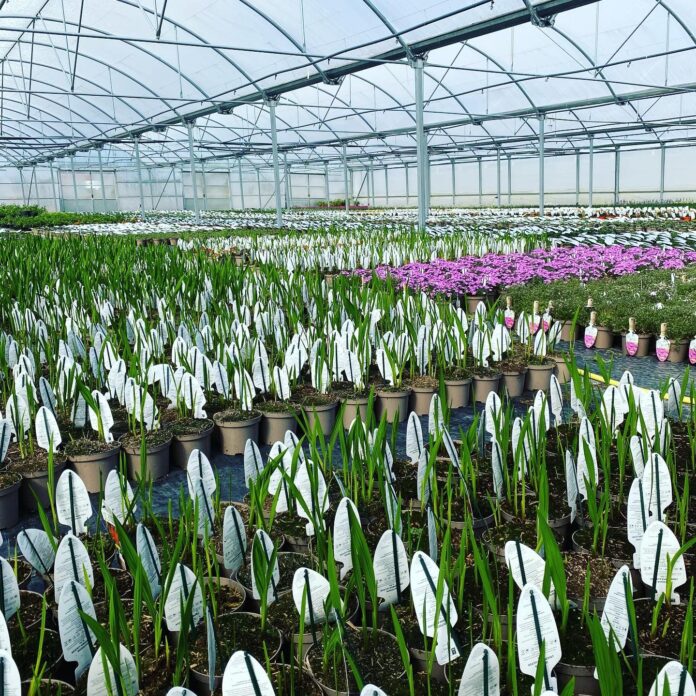Running a tree or plant nursery in Ireland is not an easy task. Climate change, scarcity of staff, transport prices and mounting overheads are just a few of the challenges that we face daily.
On a brighter note, the horticulture industry is in a good position currently, with some exceptional growers around the country.
With sustainability having environmental, economic and social benefits for society, now is the time to increase our domestic growth and reduce where possible the importing of plants and trees.
The main reason for importing is primarily availability; but there are downsides. There are high costs involved transporting goods into the country, and there is an environmental impact with the higher carbon emissions. Prices may also be volatile when going to the international market for plant supplies, depending on demand for the desired stock. A further concern is that the quality of imported plants and trees may deteriorate mid transit, especially when it comes to importing herbaceous plants during the summer season.
There is also the risk of bringing various diseases into our country. We have seen an example of this recently with an oak processionary moth. Its caterpillars feed on leaves and can cause severe defoliation, leaving trees weakened and open to secondary infections from other pests and diseases. (Another risk is Xyella, a bacterial disease with a wide range of hosts including lavender, holly, prunus and quercus. The disease is present in parts of Europe, but currently not in Ireland or the UK.)
For these and other reasons, it makes sense that we as an industry reduce the significant percentage of plants that we are currently importing. The burning question is: how do we do this?
DIALOGUE AND JOINED UP THINKING
Ireland is a small market, so large numbers of plants won’t be available unless there is concrete planning and communication between the various stakeholders. These stakeholders include landscape architects, landscapers and growers. Much greater cohesion in terms of joined up thinking needs to happen between these groups if we are to increase our sustainability in the industry by reducing plant imports.
The most difficult question nursery owners face is, “What will we grow?”
Dialogue between the most important stakeholders in the industry in relation to future demand is essential. If the growers can get more information from the landscape architects regarding the palette of plants and trees that will be needed for both commercial and domestic jobs, they can plan and produce what is needed to improve the landscape of our country.
If we look at the typical production time for shrubs and herbaceous plants, it is usually a three-to-twelve-month period. So, while early planning is important, it doesn’t need to be years in advance.
We can see that large retailers in Ireland are leaning more and more towards planned and contract production, as they have seen the advantages both from a planning and financial point of view. They also want to support the domestic economy and deal with local Irish growers. There is every reason for smaller businesses to take note of this model and to follow suit.
If a government organisation such as Teagasc or Bord Bia could compile stats on the most commonly imported plant varieties and sizes, this could facilitate conversations between individual growers and landscapers/landscape architects, with a view to substituting these imports with homegrown production.
LOCAL PRODUCTION FOR LOCAL CONSUMPTION
There are many advantages to sourcing plants locally. The contract growing of plants and trees is used more and more regularly in other countries. It is a model that supports the local sourcing of plants. Here at Perenia – recently rebranded from SAP Nurseries, one of Ireland’s oldest and most recognised commercial nurseries – we deal with a lot of Irish landscapers, and we also contract-grow for the retail market and other Irish nurseries. Over the last few years, we have seen the benefits of contract growing to landscaping contractors and the retail market.
Hardy plants in Ireland are usually produced outdoors or in a cold greenhouse with no artificial heat. This is so much better for the environment; plus plants produced without artificial heat are less likely to suffer when planted out in the open air.
Plants being imported to Ireland are sitting on trucks for a longer period in comparison to when they’re produced locally. Local sourcing can be beneficial to the environment, as it uses less transportation and consequently causes less carbon emissions. Total carbon emissions, however, depend not just on how far, but also by what means a product was transported. If products are getting transferred by cargo trucks, for example, it means big carbon emissions, as trucks are being driven from Europe.
Buying and dealing with local growers increases local employment in the area, which can only be a good thing for the Irish economy, and will help in securing the future of the horticultural industry. Having constant dialogue between the various stakeholders in our industry will lead to trust and consistency of quality. And growing plants in high volumes means that plants can be produced more competitively.
Contract growing involves pre-ordering your stock from your nursery of choice, who then in turn produce your order to be ready for call-off when needed. Some of the advantages we have seen from this model include the security of supply for the end user, the uniformity of quality and various cost savings. Contract growing also ensures an appropriate availability of plant material.
When weighing up the benefits of sourcing plants locally, reduction of disease risk should also be considered. Ireland is currently free of many diseases that are on the continent. The more we import, the higher the risk of bringing in these diseases.
Having their plants and trees grown in Irish nurseries gives the client the opportunity to visit and examine their order on a regular basis over the contract growing cycle. Plants imported from Europe and planted directly on site may not have been subject to a similar inspection regime.
Some nurseries in Ireland also have the additional reassurance of being members of the Bord Bia quality assurance scheme, which gives the client peace of mind in relation to the quality of their plants and trees.
The planting of trees and other plants needs to increase dramatically over the next few years to tackle climate change and to improve sustainability. Now is the time to start the dialogue to ensure that as many as possible of these plants are homegrown. ✽
 JOHN FLANAGAN has been Managing Director of SAP Nurseries, recently rebranded as Perenia, since 2005. For more information, please visit www.perenia.ie
JOHN FLANAGAN has been Managing Director of SAP Nurseries, recently rebranded as Perenia, since 2005. For more information, please visit www.perenia.ie




